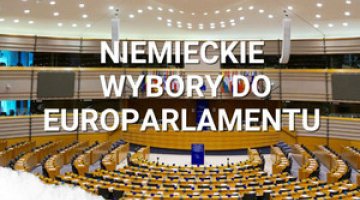Analyses
The Bundestag's resolution at the 20th anniversary of the Polish-German treaty
On 10 June the German parliament adopted a resolution to mark the occasion of the approaching (17 June) 20th anniversary of the Treaty on Good Neighbourhood and Friendly Co-operation signed between Poland and Germany. The work on the text of the resolution was drawn out and numerous improvements were made. The document includes the main demands from the Polish minority in Germany and paves the way for further negotiations with the German government about eliminating asymmetries in the treatment of the Polish minority in Germany and the German minority in Poland.
All parties except for the Left Party, which was not invited to work on the document and did not agree to its content, voted in favour of the resolution.
From the point of view of Polish-German relations the document’s sections dealing with the Polish minority are particularly important. In the resolution the Bundestag rehabilitated members of the pre-war minority organisations which were disbanded in 1939, whose property was taken over by the German Nazi state and whose members were sent to death camps. The Bundestag's resolution has only a symbolic meaning and does not have the rank of legal acts, for instance of the law relating to rehabilitation of Stasi victims in the German Democratic Republic. The use of the term “rehabilitation” in the resolution can only facilitate the justification of claims towards Germany, including material ones, which can be made by organisations representing the Polish minority. Additionally, Bundestag members supported the establishment of a place that would document the history and culture of Poles in Germany, a Polish minority office in Berlin and the “right to strengthen cultural and language identity”.
The resolution also pays homage to the expelled who “were committed to cultivating a common cultural heritage and who established contacts with Poland”. In the document German MPs call for examining the assimilation policy of the People's Republic of Poland oriented towards Germans who stayed in the territories of the former Third Reich. The resolution equally features a catalogue of recommendations for the German government relating to the future of Polish-German relations, including the strengthening of the Weimar Triangle, the intensification of contacts at the governmental level and support for Poland during its EU presidency.
The resolution can be used to level off asymmetries in treating the Polish minority in Germany and the German minority in Poland, particularly in support (also financial since there are huge discrepancies to the detriment of the Polish minority) given to learning the mother tongue. <ciechan>




